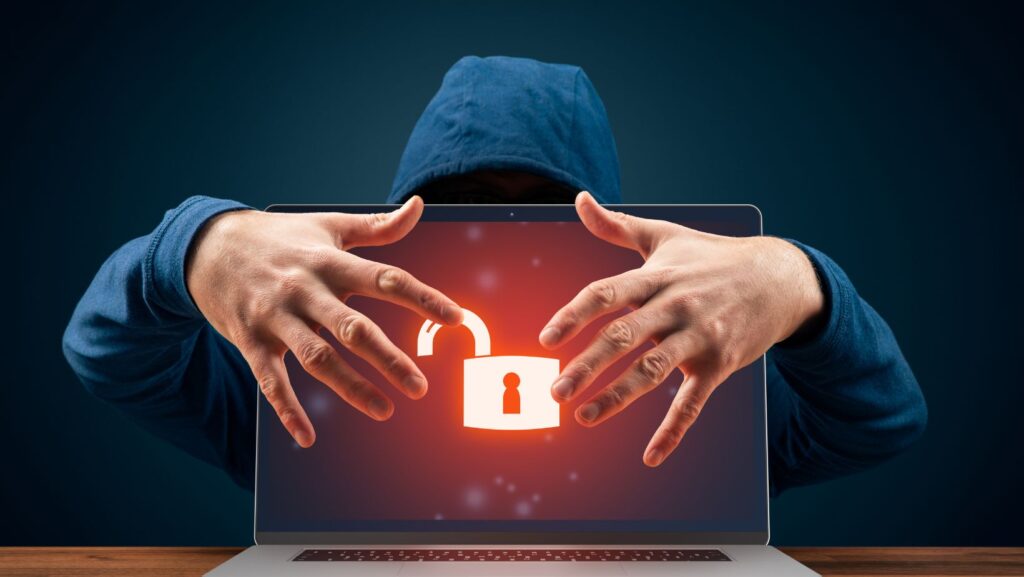Adults and kids both know that games can be incredibly fun and rewarding. Unlike other generations, modern adults do not think games are only for kids anymore. Actually, the average age for online gamers is 30 years old in 2024.
This, plus the easy design accessibility to play games, has increased their popularity. Think about it – at first you needed a gaming console to access the gaming world, whereas nowadays the possibilities are almost infinite.
You can use a computer, a phone, a tablet, even smart TVs and, of course, game consoles. As a result of the increased popularity, hackers started to see an opportunity in the gamer world.
It’s crucial to stay informed about these threats to know how to protect yourself and your family if they play games too.
Why Are Gamers a Good Target for Hackers?
Gamers are, unfortunately, one of the main targets for hackers for several reasons.
With millions of players online and numbers increasing, hackers see a world full of potential victims. Of course, it’s not only about the amount of people – it is also about the value of your gaming accounts and all the personal data gathered there.
Do Your Gaming Accounts Have Access to Your Personal and Financial Information?
Gaming accounts often have to be linked to personal and financial information. Even if you are super careful with it, you probably have used your credit card at least once to buy a game or any game features.
Your personal data could be stored in the history of purchases, just like your personal messages and contacts stored in your account.
Hackers can use or sell this information or use it to blackmail you or your close contacts.
In-Game Assets
Any rare skins, valuable items, or in-game currency could also be stolen, just like any other online asset.
These virtual assets are worth real money, and hackers know how to take advantage of them. A high-level gaming account can be a juicy target for a professional gaming hacker.
How Are Hackers Attacking Gamers?
Their Main Strategy: Phishing Scams
During a phishing attack, hackers will try to scam you through email, chat messages, phone calls, impersonating game platforms, and any other form of communication you can think of.
Their main goal is to obtain private and sensitive data such as financial information, credentials, passwords, or any other useful details for their illicit activities.
Phishing involves psychological manipulation to be successful, and usually, they pretend to be entities or someone you know.
Have You Ever Heard of Malware?
Malware is a short form of malicious software that has many different faces. Basically, what happens is that hackers use malware to stay hidden and control your devices without you necessarily noticing it.

One of the usual strategies is to steal people’s information to use it to send links and viruses on their behalf. Other gamers will believe the link is harmless and once they click on it, they can download malware too, causing the cycle to never end.
Tricky but Possible: DDoS Attacks
If you ever experienced sudden lag or a complete disconnection while gaming, you might have suffered a “Distributed Denial of Service”, or DDoS attack.
These types of attacks simply consist of overwhelming your network with traffic, causing your servers to crash. While sometimes all they can get is to annoy gamers, other times it’s a tactic to force players offline or even demand a ransom for them to stop.
How Can You Protect Yourself While Gaming?
We don’t mean to make you feel scared while playing – not at all. Gaming is a fun and entertaining experience everyone should be able to enjoy if that’s what they desire.
That’s why we advise you to follow these simple steps to stay safe while having fun:
It’s Not a Myth: Passwords Are Important
Create complex passwords and update them regularly. You can use a password manager to make this easier. Also, make sure you don’t use the same password across all your accounts – this will decrease the risk of a hacking attack.
Enable Two-Factor Authentication (2FA)
2FA is a more recent way of strengthening security. Essentially, it’s an additional security measure that requires you to use another “verified” form of authentication – for example, a text with a code sent to your mobile phone, by email, a voice call and so on. It can even be an external key or biometrics.
Consider Using a VPN
A Virtual Private Network, or VPN, should be a must-have for all gamers concerned about their privacy and security.

VPNs encrypt your internet connection and mask your IP address – the perfect solution to keep criminals away. Plus, they are easy to use and relatively cheap for the services they offer.
Consider looking up a bit about them before purchasing one; do some research and find the one that best meets your needs, budget and flexibility – offers like Surfshark services can be a great fit for many people and gamers.
Conclusion
Just like for any other online activity, gamers should protect their information and logins. Sometimes, while having a fun time, you can let yourself go because of the adrenaline and forget about safety.
By following some simple steps like the ones we mentioned in this article, you can forget about it and only concentrate on the gaming experience. Staying safe online is fairly easy – all you need is a bit of information and investing some time on it.

